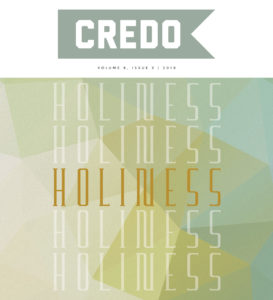Many a young preacher or seminary student  have asked, “Is learning Greek and Hebrew really necessary? Don’t we have reliable English translations after all?” While it is true that we have reliable English translations, it is still important for those desiring to preach God’s Word to learn the original languages. Neglecting to study the original languages, when they are so accessible, is akin to an astronomer settling to study pictures of the sky when a clear night and telescope are right outside his door.
have asked, “Is learning Greek and Hebrew really necessary? Don’t we have reliable English translations after all?” While it is true that we have reliable English translations, it is still important for those desiring to preach God’s Word to learn the original languages. Neglecting to study the original languages, when they are so accessible, is akin to an astronomer settling to study pictures of the sky when a clear night and telescope are right outside his door.
Along these lines, Luther provocatively states, “It is a sin and shame not to know our own book or to understand the speech and words of our God; it is a still greater sin and loss that we do not study languages, especially in these days when God is offering and giving us men and books and every facility and inducement to this study, and desires his Bible to be an open book.”[1] If Luther did not excuse ministers in his day from studying the languages due to the abundance of available resources, what excuses do ministers have in our day? Click To Tweet What is more, we have far more resources at our fingertips than Luther did. Due to technological advances and numerous accessible publications, it is easier than ever to dive into the languages of Scripture.
One such recent publication is Going Deeper with New Testament Greek: An Intermediate Study of the Grammar and Syntax of the New Testament. Andreas Köstenberger, Benjamin Merkle, and Robert Plummer co-authored this intermediate grammar, published in 2016 by B&H Academic. The primary goal of the authors “was to produce an intermediate Greek text that could be manageably digested when a student reads through the material.”[2] Indeed, all one has to do is spend 15 minutes reading the advanced Greek grammar BDF to appreciate this goal.[3]
Going Deeper is divided into 15 chapters, which makes it ideal for the average 15-week seminary semester. The authors take a “middle of the road” approach when it comes to what they include and exclude from their text. If Dan Wallace’s grammar Beyond the Basics is more of an intermediate to advanced grammar, then Going Deeper is more of a beginner to intermediate grammar.[4] This makes it a perfect text for those just finishing their first year of Greek, or for those who let their Greek slip away but want to revive it.
Going Deeper has numerous strengths, a few of which will be detailed below in no certain order. First, the book begins with a section on text criticism. This is largely unique to intermediate grammars, and it is very helpful for those wanting to understand some of the “ins and outs” of text criticism. They explain external criteria, internal criteria, and scribal errors, as well as how to understand and to use the textual apparatuses. While it is by no means exhaustive, it is an unintimidating look into the art and science of textual criticism.
Second, Going Deeper has an informative and well-written chapter on verbal aspect. Verbal aspect has been a prominent yet contentious issue within recent Greek studies. Constantine Campbell states, “Verbal aspect has been the most controversial issue within Greek studies in the last twenty-five years.”[5] The focal point of the debate is whether or not the Greek verb conveys time in the indicative mood. The authors of Going Deeper believe that time is conveyed in the indicative mood; at the same time, they agree with the majority of scholars that Greek is an aspect prominent language. They also include discussions about how aspect is affected by lexical, grammatical, and contextual factors. These discussions are very insightful, and even if one disagrees with their final conclusions (this reviewer agrees with them), the chapter is still worth a careful reading.
Third, the authors include a chapter dedicated to sentence diagramming and discourse analysis. While sentence diagramming can initially appear daunting, learning how to diagram the text forces the student to slow down and see the syntactical connections that are often crucial for proper exegesis. There are three methods of diagramming taught in the book: line diagramming, arcing or bracketing, and phrase diagramming. Each of these methods is helpful in their own right, and the serious student of God’s Word should be familiar with them all.
Discourse analysis came on the scene of biblical studies in the 1970’s, and since then, has been gaining popularity among textual scholars. While the authors only dedicate 4 pages to discourse analysis, the brief introduction familiarizes the reader with important categories such as discourse boundaries, prominence, and cohesion. If these four pages whet the reader’s appetite for discourse analysis, consider reading Steve Runge’s Discourse Grammar of the Greek New Testament, or Robert Dooley and Stephen H. Levinsohn’s Analyzing Discourse: A Manual of Basic Concepts.
Fourth, every chapter concludes with what the authors call a “built-in reader.” This reader consists of a short passage from the Greek New Testament that is followed by commentary to help the student implement what they are learning. According to the preface, “the various texts were carefully selected using at least three criteria: (1) A text must highlight the grammar or syntax discussed in the chapter; (2) a text must be pastorally relevant, theologically foundational, or doctrinally debated; and (3) a text must be around 10-12 verses in length.”[6] The built-in reader is beneficial because it gets the student into the text of the New Testament, and then guides them through the interpretive and syntactical process.
Though Going Deeper has numerous strengths, there are a couple weaknesses worth mentioning. First, the greatest weakness of the book is its brevity in the section on prepositions. M. L. Lopez wrote “An in-depth knowledge of a language is not attained until one has total mastery of its preposition system.”[7] Unfortunately, Going Deeper does not give this type of emphasis to prepositions; the section on prepositions is only 14 pages long. To give some comparison, Stanley Porter dedicates 41 pages to prepositions in his Idioms of the Greek New Testament;[8] Dan Wallace dedicates 34 pages in his Greek Grammar: Beyond the Basics; and David Mathewson and Elodie Emig dedicates 21 pages in their Intermediate Greek Grammar. Obviously, page count alone does not reveal the quality of what is written, and the brief section is still helpful. This critique is focused more on the lack of emphasis and attention given to prepositions at large. In a future updated edition, perhaps an entire chapter dedicated to prepositions would be appropriate. For the student who wants a better grasp of Greek prepositions, consult Murray Harris’ Prepositions and Theology.[9]
The second weakness is much like the first: it is not so much about what the authors wrote, but about what they did not write. As mentioned above, the section on text criticism is very helpful and unique to intermediate grammars; however, it would be more helpful if the authors included a list, chart, or brief description of the most important manuscripts of which students should be aware. Most inquisitive students can figure out how to make sense of their NA28 apparatuses; yet, due to their lack of knowledge of the manuscripts themselves, they end up counting manuscripts instead of weighing them. But as Wescott and Hort emphasized over 130 years ago, “KNOWLEDGE OF DOCUMENTS SHOULD PRECEDE FINAL JUDGEMENT UPON READINGS” (Emphasis Original).[10] Understandably, the authors were not trying to write a book on text criticism and one understands that only so much can be included; however, this extra information would get students closer to doing text criticism accurately, instead of knowing some procedures but not being able to properly implement them.
These two weaknesses should not deter anyone from reading Going Deeper. The authors overwhelmingly succeed in their goal of writing an accessible and digestible intermediate grammar. For those seeking to develop their facility with Greek, or for those wanting to revive what they have lost, Going Deeper is highly recommended. If Luther did not excuse ministers in his day from studying the languages due to the abundance of available resources, what excuses do ministers have in our day?
Endnotes
[1] Luther, “To the Councilmen of Germany,” 364.
[2] Andreas J. Köstenberger, Benjamin L. Merkle, and Robert L. Plummer, Going Deeper with New Testament Greek: An Intermediate Study of the Grammar and Syntax of the New Testament (Nashville, Tennessee: B&H Academic, 2016), 2.
[3] Friedrich Blass, Albert Debrunner, and Robert Walter Funk, A Greek Grammar of the New Testament and Other Christian Literature: A Translation and Revision of the Ninth-Tenth German Ed. (Chicago: Univ., 1970).
[4] Daniel B Wallace, Greek Grammar Beyond the Basics: An Exegetical Syntax of the New Testament (Grand Rapids, Mich.: Zondervan, 2008).
[5] Constantine R. Campbell, Advances in the Study of Greek: New Insights for Reading the New Testament (Grand Rapids, MI: Zondervan, 2015), 105.
[6] Köstenberger, Merkle, and Plummer, Going Deeper with New Testament Greek, 5.
[7] M. L. Lopez, Problemas y mtodos en el analisis de preposiciones (Madrid: Gredos, 1972), 12, cited by Murray Harris in Prepositions and Theology (Grand Rapids, MI: Zondervan, 2011), 14.
[8] Stanley E. Porter, Idioms of the Greek New Testament, 2. ed. reprinted, Biblical Languages Greek 2 (Sheffield: Sheffield Academic Press, 1999)
[9] Murray J. Harris, Prepositions and Theology.
[10] Brooke F. Wescott and Fenton J. A. Hort, The New Testament in the Original Greek (Cambridge and London: MacMillan and Co, 1881), 31.


